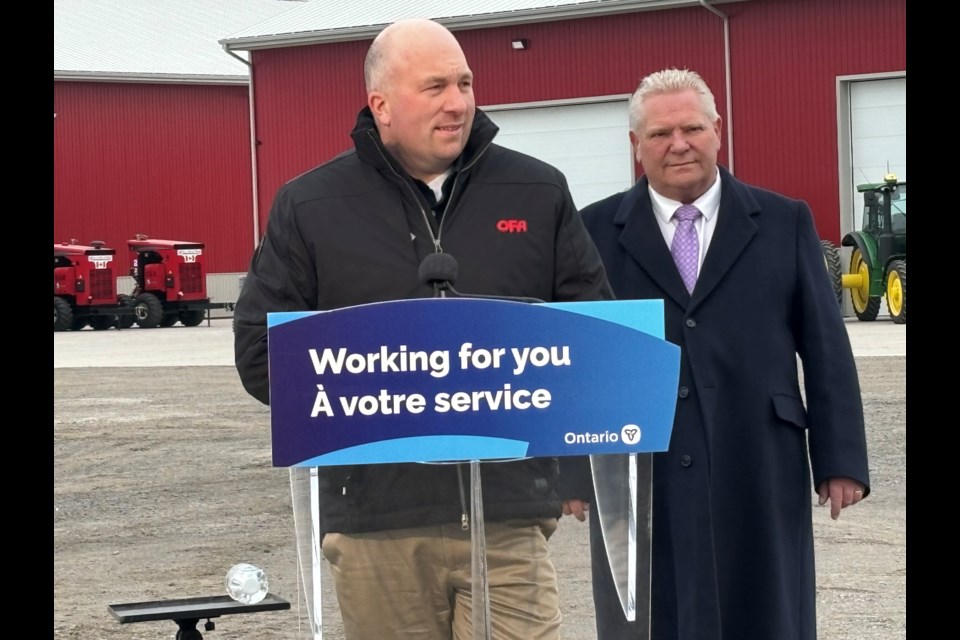Premier Doug Ford came to a York Region farm this morning to call on Ottawa to scrap its carbon pricing program as it rose by 23 per cent yesterday.
Ford voiced his strong opposition to "this awful carbon tax" as he was joined by members of the Ontario Federation of Agriculture, the Canadian Federation of Independent Business, dignitaries, guests and MPPs at Holland Marsh Farm in East Gwillimbury on April 2.
“Ontario families, farmers, and small business owners deserve better,” Ford said. “They deserve leaders who will stand up for them. They deserve a government that will fight to put more money back in their pockets. That is exactly what our government is going to do.”
The national price on pollution rose by $15 per tonne on April 1. Canada has two different carbon pricing programs — one for big industry where companies pay the price on a share of their emissions, and a consumer carbon levy applied to fossil fuel purchases.
“This isn’t the first time (the federal government) raised their carbon tax, but it couldn’t come at a worse time,” said Ford. “Now, because of this awful carbon tax, families across Ontario spent their Easter weekends lined up around the block waiting to fill their gas tanks up one more time before the increase kicked in. I saw it down the street where I live, people are lined everywhere I went.”
On gasoline, the carbon price went from $65 per tonne to $80, which is 17.6 cents per litre, up 3.3 cents per litre from before, according to the federal government. Filling a 50-litre tank from empty will cost about $8.80 in carbon price, about $1.65 more than before.
With the Bank of Canada’s interest rate sitting at five per cent, 30 per cent of inflation comes from fuel and energy costs, he said, with carbon pricing affecting everything from home prices to gas and groceries.
“I call out the Bank of Canada, we have to start lowering these interest rates,” Ford said. “You’re going to end up killing people over the next year or two years when they renew their mortgages.”
Drew Spoelstra, president of the OFA and a grain, beef and dairy farmer, said farmers are worried about the increasing carbon tax levy.
“When our costs go up on the farm and in the supply chain, it has a serious impact on everyone,” said Spoelstra. “We’re doing what we can on farms, but sometimes government actions make it harder. The federal carbon tax is a good example of that.”
The federal carbon pricing program is designed to protect the environment by reducing greenhouse gas emissions and changing consumer behaviours. Consumers are being encouraged to switch from gas-powered vehicles to electric cars, retrofit their homes to save on heating, and install heat pumps.
Spoelstra said his organization supports a clean environment but farmers don’t have any alternatives.
“We have to use fuel and energy to grow the food we all eat three times a day,” said Spoelstra.
This past fall on his farm, he dried 2,500 tonnes of grain. He said it cost him $4,500 in carbon tax. He said eliminating carbon pricing would provide needed relief for farmers and reduce operation costs.
The Ford government has been staunchly opposed to carbon pricing. It temporarily cut the gasoline tax by 5.7 cents per litre, and the fuel tax by 5.3 cents per litre, from July 1, 2022 to June 30, 2024. It has extended the measure until the end of the year in anticipation of a federal increase on March 24.
“At a time when the cost of living has never been higher, leaders of every single level of government have a duty to do everything we can to keep costs down for the hard-working people of Ontario,” said Ford.
